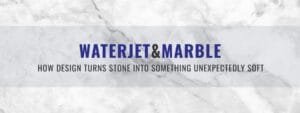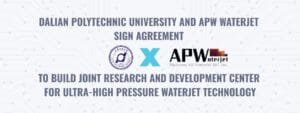Hey kid, so you wanna get into sheet metal fabrication? Alright, pull up a chair. Don’t get it twisted—buying a couple machines won’t make you rich overnight. This game’s all about taking it step by step, learning your craft, and growing steady. Here’s how it usually goes.
Stage One: Start Small in Sheet Metal Fabrication
When you’re just getting started, forget the fancy stuff—waterjets, lasers, all that. You gotta nail the basics first: shear, press brake, punch, welder, and finishing tools.
- Shear: Cuts metal sheets down to size. A small electric one’ll do, around $2k–$5k.
- Press brake: Manual or semi-auto. Makes angles, boxes, panels. $5k–$15k for a decent starter model.
- Punch: For holes and slots. Handles most simple jobs. $3k–$8k for small-scale machines.
- Welder: MIG or TIG, whichever floats your boat. Needed for assembly. $1k–$3k.
- Deburring & finishing tools: Smooths edges, polishes surfaces. Makes your stuff look legit. $500–$2k.
Total startup cost: roughly $10k–$35k. Don’t go crazy. Keep it simple, make sure you can actually deliver.
Jobs you can grab: brackets, small enclosures, simple furniture parts, basic panels.
Big bro tip: master these basics first. Don’t go chasing big clients until you know your machines and skills can handle it. And keep an eye on cash flow—don’t overextend.
Stage Two: Expand, Bring in Precision Gear
Once you got steady orders, it’s time to level up. Focus on precision and what you can actually make.
- CNC cutter: Laser or plasma. Thin sheet precision, panels, decorative stuff. $30k–$120k depending on brand and size.
- Auto/CNC press brake: Makes batch production faster and cleaner. $20k–$80k.
- Surface treatment line: Powder coating, painting, polishing. Clients dig ready-to-go parts. $15k–$60k.
- CNC punch: Complex holes, precise pieces. High-end clients will find you. $25k–$90k.
Investment: tens of thousands to a few hundred thousand RMB, depending on how fancy you go.
Business expansion: industrial parts, machine frames, architectural panels, electronics enclosures.
Big bro tip: Train your crew. Precision machines don’t forgive mistakes, and mistakes get pricey fast.
Stage Three: Bring in What Nobody Else Can—Waterjet
Now we’re talking real money. Waterjets aren’t something just anyone can handle.
- Waterjet cutter: Thick steel, stainless, aluminum, plus stone, glass, rubber—you name it. $70k–$200k for a good mid-range system.
- Why it crushes laser & plasma: Those guys burn edges, need extra finishing, can’t touch thick plates, high-reflective metals like aluminum or copper are tricky, and fancy alloys can warp from heat. Waterjet? None of that. Thick, thin, odd shapes—clean cut every time.
- Orders you can now grab: sheet metal parts, brackets, thick machine bases, prototypes, plus stone panels, glass, rubber gaskets… all sorts.
- Profit boost: Hard for others to match this, so you can double your prices and margins.
Big bro tip: Stay on top of quality and deadlines. At this stage, clients care about precision and reliability more than anything else.
Stage Four: Lock It Down, Grow, and Expand
By now, you’ve got a solid setup. Time to scale smart:
- Upgrade gradually: basic machines → CNC cutting/bending/treatment → waterjet → auto press brake → full finishing line.
- Go after high-profit jobs: precise parts, thick plates, prototypes, stone/glass/rubber stuff.
- Offer one-stop service: cutting + bending + welding + finishing. Clients love it, you can charge more.
- Client relationships > machines: repeat business = steady cash flow.
Big bro tip: Start building your rep and managing clients. Tech alone won’t carry you far. A good name in the business? That’s money in the bank.
Listen up, kid. Sheet metal fabrication isn’t a get-rich-quick gig. But if you play it smart and step it up stage by stage, you can build a solid shop:
Stage One: Basics. Small orders, get stable.
Stage Two: CNC cutting, auto bending, surface treatment, CNC punch. Higher-end industrial parts.
Stage Three: Waterjet. Services nobody else can offer. Profits double. Stone, glass, rubber—bring it on.
Stage Four: Deepen client relationships, stabilize cash flow, grow long-term.
Big bro reminder: skill, quality, and rep—that’s your backbone. Take it slow, do it right, and you’ll make real money.



